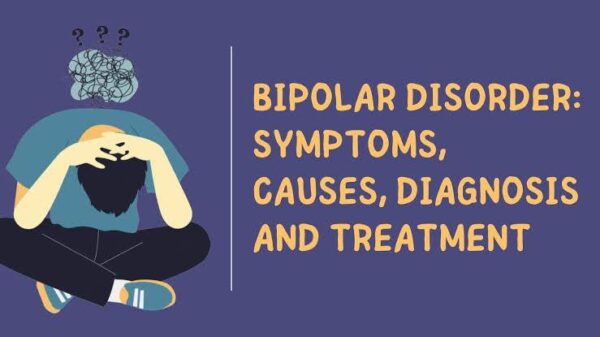All About Bipolar Disorder
Bipolar disorder, though quite common in people from different parts of the world, has still been matted by mystery. Most people find it quite difficult to understand the so-called complexities of this disease. In this article, for better comprehension, we will go deep into the world of Bipolar Disorder, which basically explores symptoms, causes, diagnosis, treatment options, and coping strategies.
What is Bipolar Disorder?
Bipolar disorder is a type of mood disorder that consists of two extreme poles of emotions-high and low. The neurological condition that is bipolar disorder influences the chemistry of the brain to give way to maniac highs or depressive lows in mood, energy, and sleep. Since it is a very misjudged illness by many people, patients often live-in isolation with feelings of stigma and being left out.
It is divided into four major subtypes: bipolar I, bipolar II, cyclothymic disorder, and other specified bipolar and related disorders. Each subtype presents different symptoms:
- Manic episodes: High mood, higher energy, less need for sleep, and bad judgment.
- Depressive episodes: Low mood, lethargy, loss of interest in activities, and changed appetite.
- Hypomanic episodes: Mildly high mood and a feeling of increased energy, but without the impairment that characterizes manic episodes.
Causes of Bipolar Disorder
While the specific causes of bipolar disorder are still not known, studies have shown that it is the result of a number of genetic and environmental factors combined:
- Genetics: Family history and genetic predisposition are both considered to be huge factors in the development of the disorder.
- Brain chemistry: Chemical imbalances in neurotransmitters such as serotonin and dopamine may contribute to mood swings.
- Stress: Traumatic events or chronic stress may trigger or worsen bipolar episodes.
- Environmental factors: Even environmental ones, such as hormonal changes or toxic exposure, can play a role in bipolar disorder development.
Diagnosis of Bipolar Disorder
Bipolar disorder requires diagnosis from a mental health professional. Diagnosis is typically based on the following elements:
- Medical history: It involves a medical history and family history.
- Psychological evaluation: This assesses the symptoms and mental status through various interviews and questionnaires.
- Mood charting: a record of mood patterns over time to track patterns and fluctuations.
- Physical examination: elimination of other medical conditions which may present symptoms similar to bipolar disorder.
Treatment Options for Bipolar Disorder
Treatment of bipolar illness generally consists of medication and psychotherapy in combination:
- Medications: the mainstay treatments, including mood stabilizers such as lithium, antidepressants, and antipsychotics like olanzapine.
- Therapy: CBT and family-focused therapy can help deal with the situation and improve relationships.
Coping Mechanisms for Bipolar Condition
The life of a person with a bipolar condition needs to encompass self-care, support systems, and treatment in order to live with the condition:
- Self-care: Symptoms are manageable by incorporating regular exercise, meditation, and spending time with others.
- Support systems: A supporting network can be built around the individual through close family, friends, and mental health professionals for emotional support and advice.
- Education: It demystifies and takes away some of the stigma from bipolar disorder by offering information about the illness. They become more aware of themselves.
Conclusion
Bipolar disorder is a very complex illness, from which a critical understanding of its symptoms, causes, diagnosis, treatment options, and coping strategies needs to be acquired. Knowledge about the illness will grant bipolar individuals with the ability to handle their symptoms better, stay in good relations, and lead a healthy and fulfilling life. If you or your loved one has bipolar disorder, the first step toward recovery is going to professionals for help.
References:
https://ip-psych.com/understanding-bipolar-disorder/
https://www.who.int/news-room/fact-sheets/detail/bipolar-disorder
https://www.ncbi.nlm.nih.gov/books/NBK558998/
Websites:
Britmed Healthcare: https://britmedhealthcare.co.uk/
Nightingale Hospital: https://www.nightingalehospital.co.uk/
Top Doctors: https://www.topdoctors.co.uk/doctor/ahmed-el-missiry
You can also book, Contact us on WhatsApp 08009708017




